Is there a more welcome sound than this?
The song of the blackbird is mellow, unhurried and rich.
It’s varied, but not exhaustingly so (hello, song thrush).
Ornithologist W H Hudson described it as ‘nearer to human music than any other bird song’, which leads us to notice that the register is lower that many other songbirds, in the range of human speech.
You can whistle along to a blackbird.
The song can be especially noticeable and welcome in urban streets, where a blackbird might easily be the only bird singing on a late afternoon in spring.
The notes are often delivered from a high perch, whether chimney stack or treetop. This helps the sound carry, even above the noise of traffic.
Of course, blackbirds sometimes sing at night too.
Day or night, they tend not to sing much in the period before Christmas, and sometimes not regularly until well into the New Year.
A more reliable sound to listen out for in the colder months is the distinctive alarm they give as they go to roost.
During the short winter days blackbirds seem relatively tolerant of each other. It’s not unusual to see several adult males hopping around the same lawn or field edge - perhaps most likely the migrant birds that arrive for the winter from colder European countries, and which are feeling less territorial about life than the all-year residents.
But in the late afternoons, the blackbird’s preference for their own space is signalled quite clearly.
Just before dark, they settle into their roost spots. Typically this is an ivy-clad tree or wall. As they do so they proclaim them with their insistent ‘chinking’ call.
At dusk, on a still evening, you may hear it in surround-sound, from all directions across the landscape.
I associate that noise with the last leg of an afternoon walk in January - a reminder to step a little quicker, if you’re to get home before you trip over in the dark.
📺 Watch of the Week
“That’s a dinosaur in the air and I don’t care what anyone says.”
Friend of Shriek of the Week Thomas Winward of Urban Nature Diary made a short film about birdwatchers in London, and a beautiful thing it is. The opening scene features what is surely the mightiest Cetti’s warbler north of the River Thames.
(Another of its wonderful voices comes from Lira Valencia, who will be joining us for Content Rising, a gathering of climate & nature communicators, at Wakehurst Place this June. More on that next week.)
This is the fourth instalment in 2025’s cycle of Shriek of the Week. You can catch up with Robin, which includes details about how all this works, as well as Wren and Song Thrush.
For those in a position to do so, taking out a paid subscription to Shriek of the Week supports me to write more and improve what I do. It also gets you an invite to our livestream-hopping Early Bird Club call - our next is Saturday 1st February - and discounts to some in-person events in the UK.
To all those who have supported Shriek of the Week over the past year: thank you.
🐦⬛ Other ways to find birds with Birdsong Academy this spring
Join a real-world early morning walkshop at Stanmer Park or Wimbledon Common in March
Explore the A-Z archive of Shriek of the Week
Next week: Great Tit


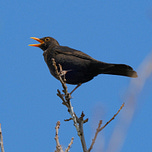




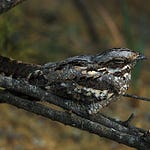
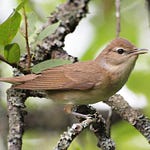

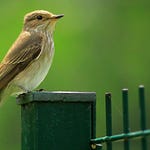


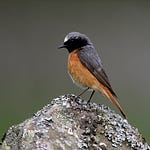
Share this post